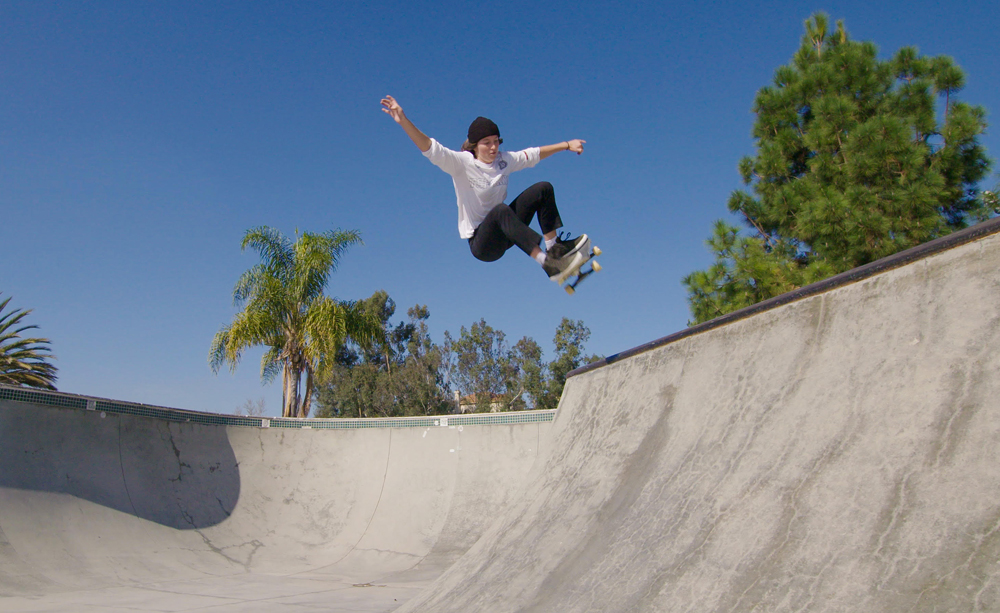“If only one girl is going good, it’s never going to go anywhere,” Cara-Beth Burnside recalls telling herself in ”Skate Dreams” as she made a lonely rise to the top of women’s skateboarding in the 1980s. When the sport itself wasn’t taken seriously until much later, and even less so for women than for men, Burnside didn’t see herself competing with the few other women that she’d see at an event, even if there was a prize on the line when growth required lifting others up alongside her rather than sending them to defeat.
There are a number of awesome skate tricks in Jessica Edwards’ invigorating and energetic survey of women’s skateboarding, but the movement that’s most impressive is what the director tracks behind the scenes as a spirit of collaboration rather than competition has led to a direct line between the sport’s pioneers and today’s stars has strengthened the sport. The only difference is how a social media-savvy generation actually knows that there are others like them out there in the world, while Burnside and Mimi Knoop, who recalls picking up a board because her father was stationed in Cuba and had little else to do, thought they were weirdoes for pursuing something so predominantly male. they might’ve held that perception for far longer if it hadn’t been for the handiwork of Lisa Whitaker, who recognized early that without documentation of female skateboarders, all their effort would go ignored and Edwards both makes note of her archiving and draws from it to illustrate a rich history of women who were skating like no one was watching – and for a time, that was unfortunately all too true.
While “Skate Dreams” finds its own structure in the solid pillars that have been built by Burnside and Knoop in fostering a sense of community and eventually a business where women are making boards themselves and owning stores to sell them, the film is centered around three skateboarders in the prime of their careers – Nicole Hause and Nora Vasconscellos, who share a house together in Southern California and have sponsorships with Nike and Adidas, respectively, and Chansangva “Tin” Kouv, who competes internationally but frequently returns to her native Phnom Penh to inspire the youth there to skate when the region is rife with violence and poverty. It becomes more and more obvious why Edwards chose an opening scene in which Kouv is in Seattle and invited to join a group of women who have just seen her skate when every scene after is an extension of that same idea, perhaps reflecting unique issues they face such as Vasconscellos dealing with online harrassment and Hause suffering an injury that could potentially derail her bid for the 2020 Tokyo Olympics, but having a camaraderie that’s been passed down over time as a common comfort.
“Skate Dreams” may not be the most appropriate title when the reality now appears to be brighter than anyone could’ve ever imagined, but just as Whitaker saw the importance of having a camera on to chronicle achievements (which she carries on to this date at Girls Skate Network) that could lead to even bigger ones, Edwards gives the sport and its athletes an epic treatment it deserves and is bound to lay the foundation to become even more popular.
“Skate Dreams” will screen at SXSW on March 16th at 5:30 pm at the Alamo Lamar B.




